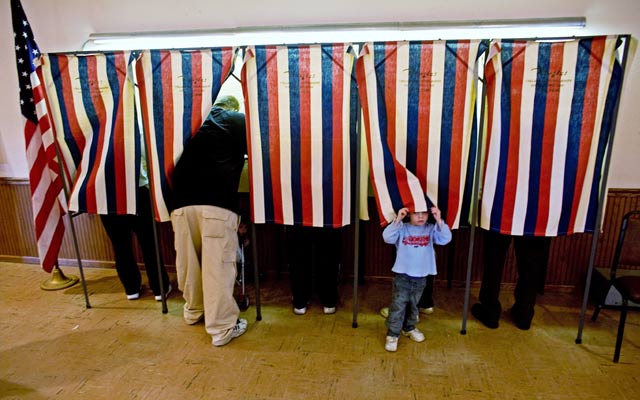
Education figures to be a hot-button issue in the upcoming Boston Mayoral race. And with the September 24th primary elections less than a month away, the time is now for candidates to distinguish themselves from their competitors. Four candidates have emerged as the primary voices on education reform: John Connolly, Dan Conley, Marty Walsh, and Mike Ross. Let’s take a look at what sets them apart within the education debate.
John Connolly
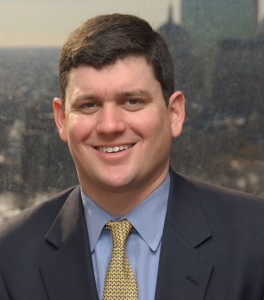
According to Connolly’s website, his education plan will focus on the following issues:
1. Extending learning time at every school to provide a full academic program that includes science, social studies, physical education, music, and art;
2. Developing a principal pipeline to ensure that every school has an excellent leader who in turn can hire and support excellent teachers;
3. Moving more resources to the school-site level and empowering school communities to make decisions;
4. Ensuring that all schools can provide full social-emotional support to students;
5. Completing student assignment reform;
6. Establishing more dual-language and full-inclusion schools across the city; and
7. Implementing a long-term facilities plan.
In touching on such a wide range of issues, the question that should be asked is: “How realistic is this broad scope?”
Connolly has the support of Stand for Children, a local education advocacy organization “dedicated to improving schools and closing the achievement gap.” Additionally, as chair of the City Council’s Education Committee, Connolly is firmly entrenched as a leading education candidate in the upcoming election.
As an authoritative voice with a track record of educational reform, it could be hard for his competitors to compete in the court of public opinion.
Connolly spearheaded the popular Quality Choice Plan last October. The goal of the Quality Choice Plan focuses on providing parents and students with reliable and predictable education. This includes neighborhood school options for parents during early childhood education and establishing a pipeline system which allows parents and students a self-selected list of school options of their choice.
The Quality Baseline, outlined in the Quality Choice Plan, calls for mandatory principal and teacher evaluations to ensure the quality of educational professional in Boston Public Schools.
Connolly wants to focus on increasing public school enrollment by providing more dual-language and fully inclusive schools.
If Connolly chooses his Quality Choice Plan as his go-to for talking points, and flexes the muscle of his education resume, voters concerned primarily with education could likely support him come election day.
In terms of facility upgrades and longer school days, Connolly’s plan is a cookie-cutter stance taken by other candidates.
Marty Walsh
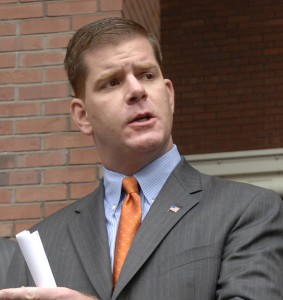
Walsh is a mere percentage point behind Connolly in the latest polls. If Walsh and Connolly do indeed emerge as the last candidates standing, the stark contrasts in each of their education plans will become all the more apparent. While Connolly’s plan is broad, Walsh’s has a narrower scope.
Walsh’s education plan focuses on “universal access to early public education for all four-year olds in Boston.” His four points of interest are:
1. Increase K-1 funding;
2. Create seats where children live;
3. Collaborate with libraries, community organizations and non-profits to expand parent programs; and
4. Prepare teachers and principals for the expansion.
At a glance, Walsh’s plan touches on many of same issues addressed by Connolly in terms of early childhood education. Even so, Walsh is pandering directly to his base with his education platform: His plan appears to be more about ensuring the support of his base, rather than attracting undecided voters.
Walsh is the labor and blue collar candidate. His education plan is just as much, if not more, about the parents – his voters – than children. This is not to say Walsh’s plan disregards the quality of children’s education.
His proposed expansion of seats at the K-1 education level aims at developing local communities where laborers and their children live with a $1 billion, 10-year initiative. The funding will go toward the long-term development of “flexible” educational facilities, which are allowed to adjust as the population increases. Walsh’s short term strategy seeks to convert local library space into additional educational facilities.
Walsh’s base should heavily support his parent programs, aimed at increasing the awareness of kindergarten readiness. With the help of library and non-profit programs, Walsh wants to educate parents on kindergarten standards in order for them to take a larger role in their child’s early development. Specifically, Walsh wants to provide K-1 level programs in municipal buildings and public buildings close to where parents work. This will be especially appealing to single parents and family’s with two working parents.
The potential flaw in Walsh’s plan remains the funding. Walsh’s plan is reliant on President Obama’s proposal, which seeks to expand funding for early childhood education. Walsh states that his administration will work to ensure congressional support. Walsh admits, however, that funding is unlikely in the short term.
Walsh should get the support from his base, but his plan might not have enough universal support to sway undecided voters.
Dan Conley
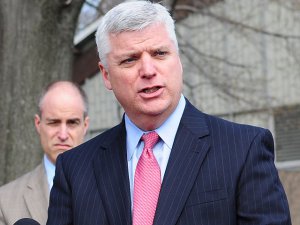
Conley’s plan strays from the community oriented approaches of Connolly and Walsh. Conley’s plan involves:
1. Lifting charter school caps;
2.Investing in teacher training and a results-focused evaluation system;
3. Broadening powers to intervene in schools before they fail;
4. Building an education pipeline from pre-school to STEM to college completion; and
5.Creating innovative models for students with special needs and disciplinary concerns.
Conley’s plan distinguishes himself from his competition. His plan, however, is not as much about reforming and investing in Boston Public Schools as it is about providing other options.
Conley’s advocacy for charter schools looks to appeal to parents who fear their child falling between the cracks of a struggling public school system. With nearly 70 percent of charter schools achieving “Level 1” status, Conley will appeal to parents keen on providing their child with the highest quality education.
The numbers are hard to deny. Charter schools are outperforming other public schools. The charter school system relies on strong leadership and innovation to provide students with the best quality education. Still, a major concern is access.
Conley’s goal of lifting caps on enrollment. For families without easy access to charter schools in their area, Boston Public Schools remain their only option. Conley’s intense focus on charter schools is counterbalanced by his seeming neglect of Boston Public School reform.
What happens to the students who don’t attend charter schools? Will their schools be held to high standards or will they be overlooked? Expect Conley’s competitors to ask him similar, and tougher, questions on this issue.
Mike Ross
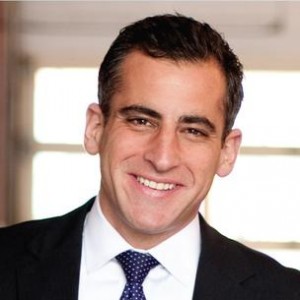
Ross has been gaining momentum, but he remains an underdog. His underdog status, however, has worked in his favor, allowing him to distinguish himself from the other candidates in this list. Two of Ross’ goals in his education plan stand out:
1. Increased tech/vocational education funding; and
2. College prep reform for qualifying students.
Ross is a proud realist. He is the first candidate to turn the fact that many Boston students won’t attend college into a political advantage. Ross has fused the education issue with the jobs issue, prioritizing the need for technical and vocational training for students not attending college. This training, Ross hopes, will prepare them for open jobs that can’t be filled even by college graduates.
For students with college plans, Ross plans on providing them with earlier, more extension college preparation.
The National Council on Education and Economy called for a complete elimination of the final two years of high school. Ross wants to head in this direction by turning the traditional senior in high school into a full-time technical or “fully-matriculated” college student.
Ross is in favor of voluntary college assessment testing for juniors to determine their readiness for college. Those who are ready can bypass their senior year and go straight to college. Additionally, for those who do not pass the assessment, Ross wants their senior year to focus on college level prep courses in subjects which need improvement.
This plan certainly feels like something many high school students would approve of. Unfortunately for him, they won’t be voting. Getting parents on board will be the challenge.
College is viewed as the norm rather than the exception, perhaps, more than ever. Convincing parents that technical or vocational education may be the best option for their child might not be a popular task.
What do you think of the candidates’ education views?

